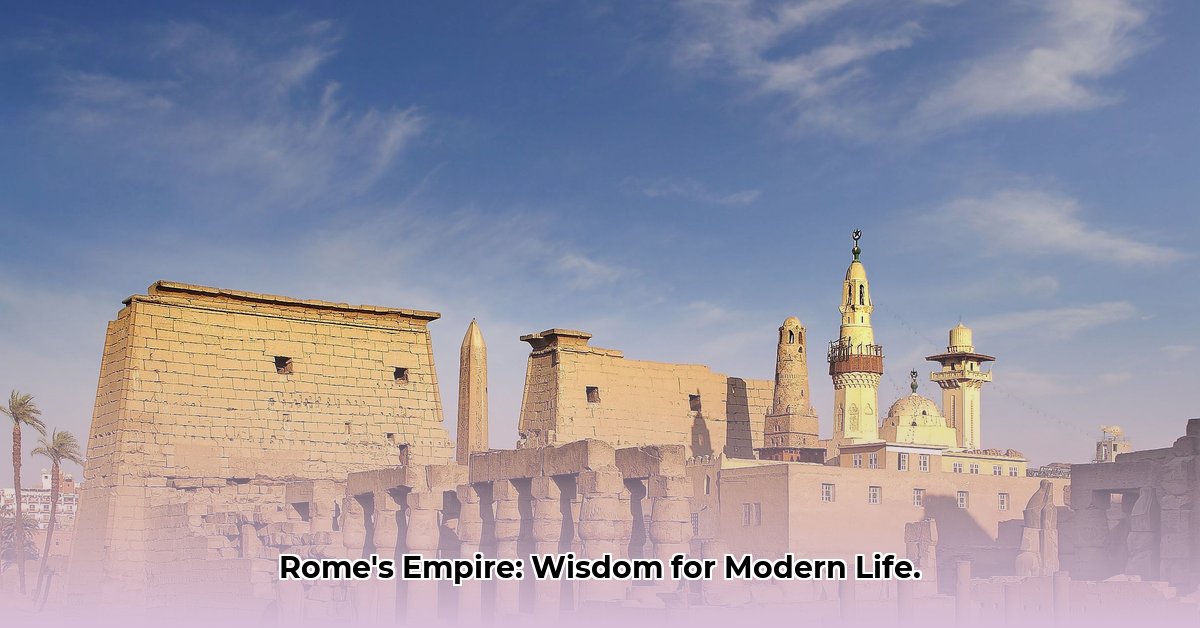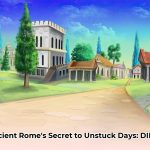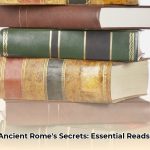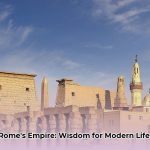From emperors’ decrees to philosophers’ musings, the enduring wisdom of ancient Rome continues to offer surprisingly profound insights for our complex modern lives. Far from being mere historical artifacts, these powerful Roman sayings and timeless Latin phrases provide practical, actionable advice that can enhance leadership, foster personal resilience, and guide us through daily obstacles. The profound legacy of the Roman Empire remains an incredible source of actionable intelligence, proving that true wisdom transcends millennia.
The Enduring Power of Roman Wisdom
Though the Roman Empire dissolved centuries ago, its lasting influence permeates almost every facet of Western civilization, from law and architecture to language and philosophy. Yet, arguably, one of its most potent and universally accessible legacies resides in its iconic sayings and proverbs—concise, insightful declarations that continue to offer profound guidance and endless inspiration. These aren’t just relics of the past; they are distilled nuggets of human experience, tackling universal themes like purpose, perseverance, and the pursuit of a meaningful life. How, then, can we, in the 21st century, truly unlock the wisdom embedded within these ancient Roman sayings and effectively apply them to our own daily existence? Let’s delve into some of the most impactful and perpetually relevant maxims and proverbs from ancient Rome.
Core Roman Sayings & Their Modern Relevance
Carpe Diem: Seizing the Present Moment
“Carpe Diem.” This iconic Latin phrase, commonly translated as “Seize the Day,” is far more than a mere slogan; it stands as a potent call to action. Attributed to the esteemed Roman lyric poet Horace, who emphasized the fleeting nature of time, “Carpe Diem” serves as a critical reminder to anchor ourselves firmly in the present moment, rather than perpetually dwelling on past regrets or being consumed by future anxieties. It compels us to maximize each day, to truly appreciate the beauty surrounding us, and to actively engage with the world in front of us.
Consider this: How often do valuable opportunities pass us by, simply because we’re preoccupied with tomorrow’s worries? “Carpe Diem” challenges us to break free from cycles of procrastination and apprehension. It urges intentional living. What small, tangible actions can you take right now to genuinely savor the day? Perhaps it involves dedicating your complete, undivided attention to a pressing task, truly listening to a friend’s insights, or simply pausing to appreciate the warmth of the sun on your skin. This deliberate focus on immediate, meaningful engagement embodies the profound essence of seizing the day, leading to a richer, more fulfilling experience of life.
Mens Sana in Corpore Sano: The Holistic Path to Well-being
“Mens Sana in Corpore Sano” translates to “A Sound Mind in a Sound Body.” This phrase beautifully encapsulates the ancient Roman understanding of the profound interconnectedness between mental and physical well-being. They recognized that true, holistic health springs from diligently nurturing both our intellect and our physical form, understanding that one cannot flourish optimally without the other.
This concept holds immense relevance in today’s demanding, often stressful environment. We frequently find ourselves prioritizing one aspect of our health over the other; perhaps we neglect physical needs while chasing intellectual or professional ambitions, or conversely, overlook mental stimulation. However, the Romans intuitively understood that a healthy mind intrinsically requires a healthy body, and a strong body undeniably benefits from a sharp, focused mind. Contemporary scientific research consistently validates this ancient wisdom, proving the profound links between physical activity, nutrition, and cognitive function or emotional balance.
Prioritizing a balanced lifestyle is absolutely critical for our overall welfare. This commitment means consistently allocating time for regular exercise, making intentional choices for healthy eating, and ensuring sufficient, restorative sleep. Simultaneously, it involves engaging in activities that actively stimulate our minds, such as dedicated reading, mastering new skills, or finding solace in nature. Striving for this dynamic equilibrium is an ongoing journey, but the significant rewards—including increased energy, elevated mood, enhanced cognitive function, and improved resilience—make the consistent effort entirely worthwhile.
Veni, Vidi, Vici: The Spirit of Decisive Action
Attributed to Julius Caesar, the renowned Roman general and statesman, “Veni, Vidi, Vici” (“I Came, I Saw, I Conquered”) is more than just a boast; it encapsulates the power of rapid, confident, and triumphant execution. This famous quote reminds us of the power of determination and decisiveness in achieving our goals. In a world often bogged down by analysis paralysis, Caesar’s words compel us to cultivate a mindset of proactive engagement, swift assessment, and unwavering resolve. It’s about approaching challenges with a clear vision, acting with conviction, and seeing tasks through to successful completion.
Si Vis Pacem, Para Bellum: The Nuance of Preparedness
“Si vis pacem, para bellum”—”If you want peace, prepare for war.” This ancient Roman proverb introduces a complex and often debated perspective on the pursuit of peace. On a superficial level, it suggests that robust military preparedness is the primary key to preventing conflict. However, a deeper examination reveals a far more nuanced understanding of the intricate relationship between power dynamics and diplomatic strategy.
While this proverb might seem antiquated in our current era of modern diplomacy and extensive international cooperation, it continues to provoke essential questions about the fundamental role of strength in maintaining global stability. Some argue compellingly that a formidable deterrent can effectively discourage potential aggressors, preventing them from initiating direct conflict. Others, conversely, contend that an excessive emphasis on preparedness can escalate underlying tensions, thereby increasing the inherent likelihood of actual warfare, creating a self-fulfilling prophecy.
Perhaps the most enduring and valuable takeaway from this proverb is the critical importance of astute critical thinking and comprehensive strategic planning in any endeavor. Even today, the underlying notion suggests that the most effective way to prevent undesirable outcomes is to maintain a state of readiness for various eventualities. It serves as a powerful reminder that achieving lasting stability and peace, whether in international relations or personal challenges, necessitates careful consideration of all available options, shrewdly integrating both proactive measures and, when truly necessary, defensive strategies.
The Philosophy of Strength: Stoicism for Modern Life
Stoicism represented a prominent and highly influential philosophical school within Roman society, enthusiastically embraced by emperors like Marcus Aurelius, influential philosophers like Seneca the Younger, and ordinary citizens alike. At its fundamental core, Stoicism imparts the profound importance of rigorous self-control, unwavering virtue, and the serene acceptance of those circumstances beyond our direct influence. It powerfully emphasizes the transformative power of reason and the inherent value of living consistently in accordance with nature’s principles.
In today’s often chaotic and unpredictable global landscape, core Stoic principles offer an invaluable framework for effectively navigating stress, making ethically sound choices, and maintaining composure even in the face of profound adversity. Stoic teachings possess the remarkable capacity to help us cultivate significantly greater resilience, conquer our deeply ingrained fears, and discover genuine meaning and profound purpose in our lives, even when circumstances are overwhelmingly difficult. These ancient philosophies provide a robust blueprint for navigating the modern world with inner strength and clarity.
Embracing the Dichotomy of Control
Do you ever feel genuinely overwhelmed by life’s complexities? Stoicism offers an exceptionally powerful tool for navigating this: learning to recognize precisely what lies within your control and what does not. This fundamental concept, significantly popularized by the philosopher Epictetus (d. c. AD 135), powerfully urges us to focus our precious energy solely on our own actions, our internal thoughts, and our deeply held personal values. Simultaneously, it advocates for a serene acceptance of the inevitable nature of external circumstances.
To apply Stoicism today using this principle, begin by diligently identifying the distinct sources of your stress or anxiety. Are you primarily worried about fluctuating economic conditions? Or perhaps the unpredictable behavior of a colleague? Consciously remind yourself that these elements inherently lie outside your direct sphere of influence. Instead, intentionally shift your focus towards what is firmly within your control: your reaction to the situation, the effort you exert, and the deliberate choices you make. This powerful mental shift can prove to be incredibly liberating, paving the way for greater inner peace and proactive problem-solving.
Cultivating Virtue: A Path to Fulfillment
Stoics firmly believe that genuine happiness springs not from the acquisition of external possessions or the pursuit of fleeting pleasures, but rather from the diligent cultivation of virtue. Consider wisdom, justice, temperance, and courage—these are universally regarded as the bedrock cornerstones of a truly Stoic life. Are your daily actions consistently carried out with unwavering integrity? Are you treating others with profound fairness and equity? Are you diligently striving to make consistently wise and informed choices? Each of these virtues contributes powerfully to achieving inner tranquility and a profound sense of life’s purpose.
How to apply Stoicism today through the intentional practice of virtue? It is a conscious, continuous, and deeply personal journey. This might entail courageously standing up for what is morally right, even when doing so presents significant difficulty. It could involve diligently practicing self-discipline within your daily habits and routines, such as managing your time or impulses. Most importantly, it definitively means maintaining a keen awareness of your actions and their far-reaching impact on the world and the people around you, striving always for what is good and right.
Journaling and Mindfulness: Tools for Self-Awareness
Stoicism transcends mere abstract philosophical concepts; it is fundamentally about tangible, practical application. Journaling and mindfulness emerge as two exceptionally powerful tools that can significantly assist you in internalizing and embodying core Stoic principles.
- Journaling: Dedicate a few quiet minutes each day to reflect thoughtfully on your recent actions and prevailing emotions. What aspects of your day proceeded favorably? What specific situations or reactions could you have approached differently? This consistent practice helps you discern recurring patterns in your behavior and empowers you to make more conscious, deliberate choices about how you respond to various life situations, fostering continuous improvement.
- Mindfulness: Actively practicing mindfulness, even for just a few brief minutes daily, can significantly enhance your awareness of your thoughts and feelings without immediately resorting to judgment. This cultivated awareness allows you to respond to challenging circumstances with substantially greater clarity, composure, and emotional intelligence, rather than reacting impulsively.
How to apply Stoicism today with these valuable tools? Experiment diligently to discover a method or combination that genuinely resonates with your personal preferences and lifestyle. There are no rigidly fixed rules for these practices. The overarching goal is simply to develop a deeper, more profound self-awareness and to consistently cultivate a more rational and balanced perspective on life’s unfolding events.
Lessons for Leadership and Personal Growth
The annals of ancient Rome are replete with examples of both extraordinary and deeply flawed leadership, from military generals to revered emperors. Examining these historical figures and their governance approaches offers invaluable insights into the qualities that consistently define effective leadership. Julius Caesar, for instance, was widely celebrated for his relentless ambition, his strategic ingenuity, and his unparalleled ability to inspire loyalty among his troops. Though his methods were frequently severe, his distinctive leadership undeniably shaped the very trajectory of Roman history.
Yet, genuine leadership transcends mere ambition and strategic prowess. It inherently demands a profound sense of responsibility and an authentic concern for the welfare of others. Leaders who consistently prioritize the needs of their people, who consistently act with unwavering integrity and fairness, and who genuinely inspire deep trust and lasting loyalty are invariably more likely to achieve enduring success.
Empathy, in particular, emerges as a critically vital leadership virtue. Truly effective leaders possess the capacity to understand the diverse perspectives and nuanced needs of their team members. They actively strive to cultivate a supportive and genuinely inclusive environment where every individual can thrive and contribute their best. By fostering a pervasive culture of empathy and mutual understanding, leaders possess the power to unlock the complete potential of their teams, leading to truly remarkable outcomes. As the Roman philosopher Seneca observed, “It is not because things are difficult that we do not dare; it is because we do not dare that they are difficult,” emphasizing the courage required to overcome challenges and lead effectively.
Reflecting on Mortality: Memento Mori
“Memento Mori” – “Remember you must die.” This profound Latin maxim, though perhaps initially morbid, serves as a powerful impetus for living a more purposeful and intentional life. It’s a constant, sobering reminder of our inherent mortality, urging us to deeply appreciate the limited time we possess and to make the absolute most of our finite existence. This isn’t about dwelling on death, but rather leveraging its inevitability to clarify what truly matters.
By acknowledging our impermanence, we can gain perspective on trivial worries, re-evaluate our priorities, and make conscious choices that align with our deepest values. It encourages us to cultivate gratitude for each day, to pursue our passions, and to build meaningful relationships, knowing that our time is precious. The Roman emphasis on legacy and enduring virtue often stemmed from this awareness – a desire to leave something lasting behind.
Integrating Ancient Rome’s Wisdom Today: A Practical Guide
While the accumulated wisdom of ancient Rome undeniably remains invaluable, its direct application to contemporary life necessitates careful consideration and thoughtful adaptation. The world has undergone dramatic transformations since the heyday of the Roman Empire, and we must candidly acknowledge the inherent limitations of applying ancient principles verbatim to our complex, multifaceted modern challenges.
For instance, while Stoicism can serve as a profoundly powerful tool for both personal growth and effective leadership, its emphasis on unwavering self-control and the acceptance of fate should not be misconstrued as an endorsement of complacency or outright inaction. We must also continually evolve and adapt these principles. Applying Stoicism today, for example, demands careful consideration of the intricate complexities of our deeply interconnected global landscape. Modern Stoicism requires a conscious awareness of how our actions reverberate and impact others, coupled with a genuine commitment to actively working towards a more just and equitable world for all.
Similarly, the historical Roman emphasis on overwhelming military strength and relentless territorial expansion should be viewed with considerable caution in an era that values international cooperation and intricate diplomatic negotiation. While maintaining a robust defense posture may indeed be necessary under certain specific circumstances, it should emphatically never come at the expense of open diplomacy, constructive dialogue, and the earnest pursuit of peaceful resolution for conflicts.
So, how exactly can we effectively bring these ancient Roman sayings to life and seamlessly integrate them into our bustling daily routines? Here’s a practical, actionable plan for leveraging the timeless wisdom bequeathed by ancient Rome:
- Incorporate into Education: Systematically integrate Roman proverbs and foundational philosophical concepts into contemporary educational curricula. This approach equips students with invaluable historical context and imparts timeless lessons pertaining to ethics, effective leadership, and profound personal growth.
- Apply in Business & Professional Settings: Strategically implement Roman leadership maxims and core principles within business environments. This fosters the cultivation of highly resilient teams, promotes rigorous strategic thinking, actively encourages ethical decision-making, and nurtures a vital culture of empathy and robust collaboration. For example, applying Res Non Verba (Actions, Not Words) encourages focusing on tangible results over empty promises.
- Cultivate Personal Growth: Dedicate time to reflect deeply on Roman wisdom to significantly improve overall well-being, enhance personal resilience, and strengthen ethical conduct. Actively utilize Stoic principles to adeptly manage stress, effectively overcome life’s diverse challenges, and ultimately discover profound meaning and lasting purpose. Practice “Carpe Diem” by consciously focusing on the present moment and deliberately savoring the simple, yet profound, pleasures inherent in each day. Embrace Memento Mori to drive intentional living.
- Embrace Lifelong Learning: Commit to continuously exploring the rich history, profound philosophy, and intricate culture of ancient Rome. By actively engaging with the past, we gain invaluable new insights into the present, thereby laying a stronger foundation to build a brighter and more informed future. Utilize resources like the Daily Stoic website for modern interpretations and applications of these ancient principles.
By thoughtfully integrating Roman wisdom into our daily lives, we effectively tap into an extraordinarily rich source of knowledge and enduring inspiration. This profound wellspring can empower us to skillfully navigate the inherent complexities of the modern world, consistently achieve our stated goals, and ultimately lead more meaningful and profoundly fulfilling lives. The timeless legacy of ancient Rome continues to offer invaluable lessons for every one of us.
Roman Wisdom: A Summary
| Saying | Meaning | Modern Application |
|---|---|---|
| Carpe Diem | Seize the day | Live in the present moment; focus on actionable tasks; appreciate the beauty around you; engage fully with the world to maximize opportunities. |
| Mens Sana in Corpore Sano | A sound mind in a sound body | Prioritize physical and mental well-being for a balanced lifestyle; make time for regular exercise, healthy eating, adequate sleep, and activities that stimulate your mind. |
| Veni, Vidi, Vici | I came, I saw, I conquered | Approach challenges with clear vision, decisive action, and unwavering confidence to achieve goals swiftly and effectively. |
| Si vis pacem, para bellum | If you want peace, prepare for war | Think critically and strategically. Recognize the importance of thorough planning, proactive measures, and preparedness for various eventualities to maintain stability and prevent conflict. |
| Stoicism | Finding strength in virtue and accepting what’s beyond control | Cultivate self-control, practice acceptance of what you cannot change, develop resilience, make ethical choices, and focus intensely on living in accordance with reason and nature. |
| Memento Mori | Remember you must die | Cultivate a profound sense of purpose and urgency in daily life; prioritize what truly matters, and live with intentionality and gratitude, acknowledging the finite nature of time. |










